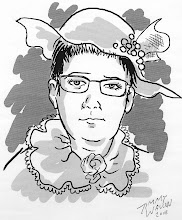World War 1 Växjö and Småland, part 2
A man from Kristdala in the U.S. Army
Although Sweden by its neutrality never became directly involved in the fighting in the First World War was still Swedes who fought in the war. The largest group was probably the Swedish emigrants who emigrated to the United States and that more or less voluntarily joined the U.S. Army.
Among them was Carl Edward Carlsson 1891-1985 from Kristdala in Kalmar County. Carl Edward
emigrated in 1912 to America where he settled in the vicinity of Oneida, Illinois.
In April 1917 the United States declared war on Germany, and in December against Austria-Hungary.
In June 1917 Carl Edward was drafted along with many other young men.Just before
midsummer 1918, they were sent to Camp Grant near Rockford, Illinois.
The new Military Service Act in the U.S. in 1917 obliged even those who have begun the application process to become a citizen to stand at the army's disposal. Carl Edward became a U.S. citizen Aug. 1, 1918 while at Camp Grant. Not everyone in Rockford's neighborhood wanted to join the army in June 1917 120 Swedes were arrested in Rockford for conscientious objection.
Carl Edwards company were after a short time training went to New York and then on to Liverpool and from England by boat to Bordaux to join the rest of the American Expeditionary Force In France
Parts of Carl Edwards field equipment helmet, canteen, knapsack, etc.
The trip to the front in France was undertaken in cattle cars. Carl Edwards Companywere quartered in a farmhouse soon the the Spanish flu broke out and most of the men fell ill.Carl Edward and the few other healthy soldiers escaped the disease but were sent to the front to fill in the gaps after the armys losses .The fighting at the front was hard and after a week, there were only 76 men of 265 left in the company the rest were dead or wounded. Overall Carl Edward spend 4 times at the front the total days spend fighting was 28 . He served mainly in the 28th Infantry Division.
After the hard battles General Pershing called the division for his "Iron Division" .
Papers relating Carl Edwards time in the field and pictures of him in uniform.
After the Armistice in November 11th 1918 the U.S. troops to stayed another 6 months in France In n March 1919 Carl Edward and his company was located in Bagneux. The demobilization took place outside Le Mans and on May 1th the return journey by boat to Philadelphia began , The final demobilization. took place May 17 at Camp Dix, New Jersey
Below Carl Edward and his comrades in the 28th Infantry Division in Bagneux in March 1919
After his return from the war Carl Edward decided to visit his family in Sweden His passport application is dated October 8th 1919. December 6th he sailed from New York to Sweden.
He later returned to U.S A and stayed there until the early 1930 thies when he definitely returned to Sweden, where he married and had two daughters, He died in 1985.Towards the end of his life he wrote down his experiences in t World War 1.
Carl Edwards daughters have put their father's belongings to Kulturparken Småland s disposal for the exhibition. The picture below shows Carl Edward Carlsons daughters Irene Enoksson and Ingrid Kronvall along with the CEO of Kulturparken Småland Lennart Johansson.
Friday, July 4, 2014
Växjö and Småland in Wold War 1 part 2
Labels:
Camp Grant,
Illinois,
Kalmar county,
Kristdala,
Oneida,
Rockford,
Warold War 1
Subscribe to:
Post Comments (Atom)






No comments:
Post a Comment